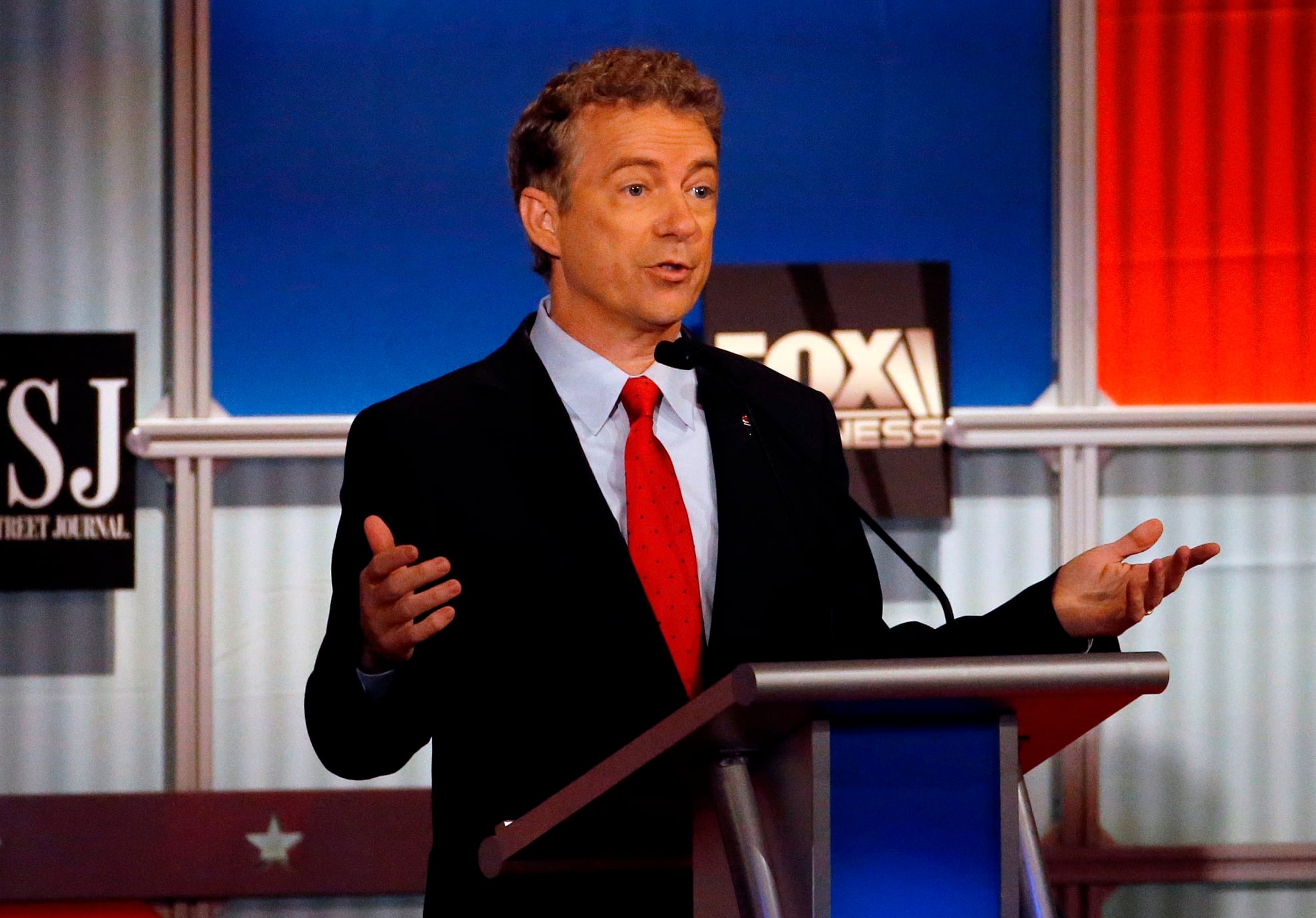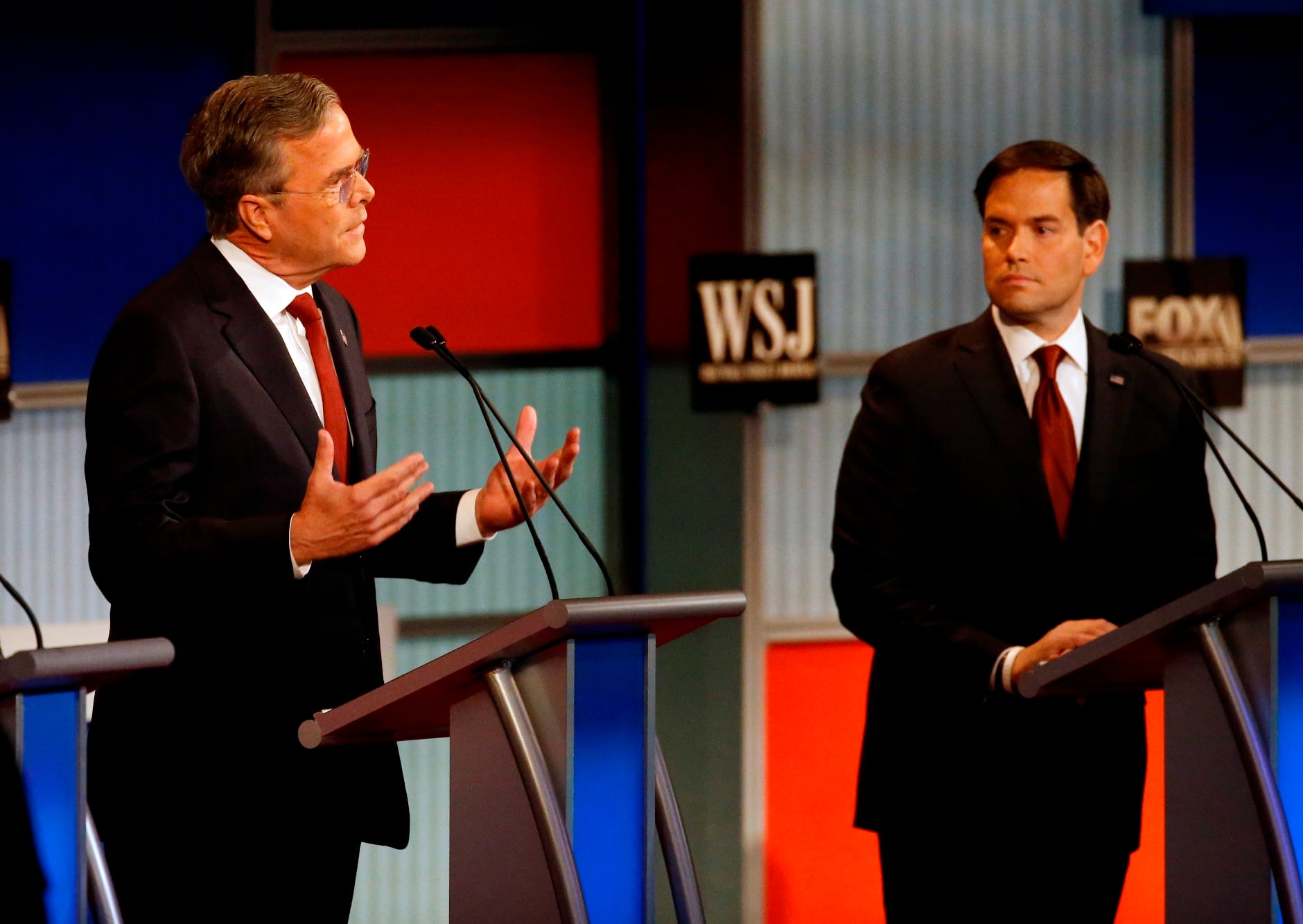On the eve of Veterans Day, the Republican presidential candidates spent their fourth national debate focused not on the impact of past wars and but instead on potential future military conflicts.
The top eight hopefuls sparred over defense and foreign policy during the advertised "economic" debate, with Kentucky Sen. Rand Paul's isolationist beliefs the target of several assaults. All blasted President Barack Obama for what they called weak security strategy and leadership, but bickered over each others' specific approaches.
The two-hour-plus event shifted from economic policy to military discussion after Florida Sen. Marco Rubio tied the two together, promising to plus-up defense spending because "we can’t have an economy if we’re not safe."

Rand Paul
Photo Credit: Morry Gash/AP
That prompted his Kentucky Senate colleague Paul to ask whether adding unchecked military spending is a conservative philosophy.
"It's not conservative if you keep adding programs you can't pay for," he said. "You can be strong without being involved in every civil war in the world."
Several candidates called decried that as naive and unpresidential. Texas Sen. Ted Cruz mocked Paul by saying "If you think that defending the nation is expensive, then try not paying for it."

Former Florida Gov. Jeb Bush, left, and Florida Sen. Marco Rubio.
Photo Credit: Morry Gash/AP
Former Florida Gov. Jeb Bush tied Paul’s views to similar half-hearted engagement from Obama's foreign policy, saying half-hearted engagement which he says has lead to the latest current turmoil in the Middle East. "We’re not going to be the world’s policeman," Bush said, "but we sure as heck better be the world’s leader."
Bush also attacked business mogul Donald Trump for implying that U.S. military forces might be able to work with Russian fighters to eliminate Islamic State factions in Syria, even while confronting the former superpower over its incursions into Ukraine.
Trump called the approach a potential path to eradicate the top terrorist threat to America's homeland. Bush called that "playing board games" with foreign policy.
Neurosurgeon Ben Carson, the current Republican frontrunner, hedged when asked if he supported Obama's decision to deploy U.S. special forces to Syria, saying "putting special ops people in there is better than not having them in there."
But he did say ISIS fighters represent the most serious threat to national security, adding "To make them look like losers, we have to destroy their caliphate. The easiest place to do that is Iraq."
Former Hewlett Packard CEO Carly Fiorina and Ohio Gov. John Kasich both preached the need for a stronger military, the former speaking about the need for a greater U.S. troops presence in Europe and the latter promising he would display more military might in the south Pacific.
None of the candidates made mention of the veterans of the wars in Iraq and Afghanistan before their closing statements, save for a tangential remark from Trump suggesting the U.S. should have taken oil from the Iraqi government to give to "our wounded warriors."
In the earlier evening debate, former Arkansas Gov. Mike Huckabee referenced recent scandals with Veterans Affairs officials, calling the department "a disaster" and theorizing "what would happen if the Congress and the president had to get their health care from the VA? We would fix the problem and we would fix Congress."
But the comments likely were not enough to calm veterans groups who have heard only a passing mention of their issues at the four debates so far.
Leo covers Congress, Veterans Affairs and the White House for Military Times. He has covered Washington, D.C. since 2004, focusing on military personnel and veterans policies. His work has earned numerous honors, including a 2009 Polk award, a 2010 National Headliner Award, the IAVA Leadership in Journalism award and the VFW News Media award.




